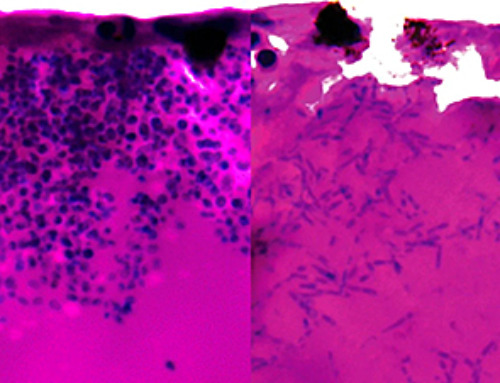Nanoparticles, tiny structures, can be utilized to carry substances to parts of the body — for instance, to provide a chemotherapy drug to a tumor.
Even though such “nanomedicine” showed promise to enhance cancer therapeutics, the survival perks of clinically approved nanomedicines are often modest compared to that of conventional chemotherapy.
A new study reported in the Journal of Controlled Release denotes that nanomedicine might offer extra advantages if it is has been administered at lower and more frequent doses — known as metronomic dosing — instead of the standard maximum tolerated dose of present treatments.
Nanomedicine and metronomic therapy have been regarded as two different approaches to treat cancer. Our analysis suggests that these two approaches can be viewed using the same unified framework as strategies to enhance treatment.
Rakesh K. Jain PhD, Study Corresponding Author and Director, E.L. Steele Laboratories for Tumor Biology, Massachusetts General Hospital
Jain is also an Andrew Werk Cook Professor of Radiation Oncology at Harvard Medical School.
Jain describes that metronomic therapy might help normalize the tumor microenvironment. This implies that it helps in rectifying a few of the abnormalities that develop around tumors and safeguarding the tumor and promoting its spread.
For instance, metronomic therapy appears to enhance blood vessel function and immune activation within a tumor while tumors can transmit signals that settle normal blood flow and block immune cell responses (both of which make them hard to treat). New preclinical studies indicate that nanomedicines can result in similar variations in the tumor microenvironment.
In this study, we hypothesized that nanoparticle formulations, given the controlled release of their payload and the long blood circulation time, can trigger the same cascade of activities as metronomic therapy.
Rakesh K. Jain PhD, Study Corresponding Author and Director, E.L. Steele Laboratories for Tumor Biology, Massachusetts General Hospital
With the help of a mathematical framework and experiments performed in mice, the researchers illustrated that both methods can act as “normalization strategies” to impact the tumor microenvironment and enhance cancer treatments.
Furthermore, in mice with triple negative breast cancer or fibrosarcoma, Doxil — a nanomedicine that is approved to treat metastatic breast cancer and comprises of doxorubicin encapsulated in a lipid sphere — administered via a metronomic schedule could overcome tumor resistance that is normally seen when Doxil is provided through a standard dosing schedule.
Also, a metronomic schedule enhanced the efficacy of the combination of Doxil plus a kind of immunotherapy known as an immune checkpoint inhibitor.
Nano-immunotherapy, which combines nanomedicines with immunotherapy, has high potential to improve patient outcomes, and for this reason, understanding the mechanisms of resistance to and development of strategies to enhance nano-immunotherapy in breast and other cancer types is urgently needed. The results of this work could be a basis for the planning of future clinical studies to improve the efficacy of nano-immunotherapy regimens.
Triantafyllos Stylianopoulos PhD, Study Co-Corresponding Author and Director, Cancer Biophysics Laboratory
Triantafyllos Stylianopoulos is also an associate professor at the University of Cyprus.
The outcomes indicate that integrating nanomedicines with metronomic scheduling can result in a strong attack against hard-to-treat tumors. By acting collectively to normalize the tumor microenvironment, these two strategies provide drugs with a better chance of obtaining cancer cells and targeting them in an efficient manner.
News
Does being infected or vaccinated first influence COVID-19 immunity?
A new study analyzing the immune response to COVID-19 in a Catalan cohort of health workers sheds light on an important question: does it matter whether a person was first infected or first vaccinated? [...]
We May Never Know if AI Is Conscious, Says Cambridge Philosopher
As claims about conscious AI grow louder, a Cambridge philosopher argues that we lack the evidence to know whether machines can truly be conscious, let alone morally significant. A philosopher at the University of [...]
AI Helped Scientists Stop a Virus With One Tiny Change
Using AI, researchers identified one tiny molecular interaction that viruses need to infect cells. Disrupting it stopped the virus before infection could begin. Washington State University scientists have uncovered a method to interfere with a key [...]
Deadly Hospital Fungus May Finally Have a Weakness
A deadly, drug-resistant hospital fungus may finally have a weakness—and scientists think they’ve found it. Researchers have identified a genetic process that could open the door to new treatments for a dangerous fungal infection [...]
Fever-Proof Bird Flu Variant Could Fuel the Next Pandemic
Bird flu viruses present a significant risk to humans because they can continue replicating at temperatures higher than a typical fever. Fever is one of the body’s main tools for slowing or stopping viral [...]
What could the future of nanoscience look like?
Society has a lot to thank for nanoscience. From improved health monitoring to reducing the size of electronics, scientists’ ability to delve deeper and better understand chemistry at the nanoscale has opened up numerous [...]
Scientists Melt Cancer’s Hidden “Power Hubs” and Stop Tumor Growth
Researchers discovered that in a rare kidney cancer, RNA builds droplet-like hubs that act as growth control centers inside tumor cells. By engineering a molecular switch to dissolve these hubs, they were able to halt cancer [...]
Platelet-inspired nanoparticles could improve treatment of inflammatory diseases
Scientists have developed platelet-inspired nanoparticles that deliver anti-inflammatory drugs directly to brain-computer interface implants, doubling their effectiveness. Scientists have found a way to improve the performance of brain-computer interface (BCI) electrodes by delivering anti-inflammatory drugs directly [...]
After 150 years, a new chapter in cancer therapy is finally beginning
For decades, researchers have been looking for ways to destroy cancer cells in a targeted manner without further weakening the body. But for many patients whose immune system is severely impaired by chemotherapy or radiation, [...]
Older chemical libraries show promise for fighting resistant strains of COVID-19 virus
SARS‑CoV‑2, the virus that causes COVID-19, continues to mutate, with some newer strains becoming less responsive to current antiviral treatments like Paxlovid. Now, University of California San Diego scientists and an international team of [...]
Lower doses of immunotherapy for skin cancer give better results, study suggests
According to a new study, lower doses of approved immunotherapy for malignant melanoma can give better results against tumors, while reducing side effects. This is reported by researchers at Karolinska Institutet in the Journal of the National [...]
Researchers highlight five pathways through which microplastics can harm the brain
Microplastics could be fueling neurodegenerative diseases like Alzheimer's and Parkinson's, with a new study highlighting five ways microplastics can trigger inflammation and damage in the brain. More than 57 million people live with dementia, [...]
Tiny Metal Nanodots Obliterate Cancer Cells While Largely Sparing Healthy Tissue
Scientists have developed tiny metal-oxide particles that push cancer cells past their stress limits while sparing healthy tissue. An international team led by RMIT University has developed tiny particles called nanodots, crafted from a metallic compound, [...]
Gold Nanoclusters Could Supercharge Quantum Computers
Researchers found that gold “super atoms” can behave like the atoms in top-tier quantum systems—only far easier to scale. These tiny clusters can be customized at the molecular level, offering a powerful, tunable foundation [...]
A single shot of HPV vaccine may be enough to fight cervical cancer, study finds
WASHINGTON -- A single HPV vaccination appears just as effective as two doses at preventing the viral infection that causes cervical cancer, researchers reported Wednesday. HPV, or human papillomavirus, is very common and spread [...]
New technique overcomes technological barrier in 3D brain imaging
Scientists at the Swiss Light Source SLS have succeeded in mapping a piece of brain tissue in 3D at unprecedented resolution using X-rays, non-destructively. The breakthrough overcomes a long-standing technological barrier that had limited [...]





















